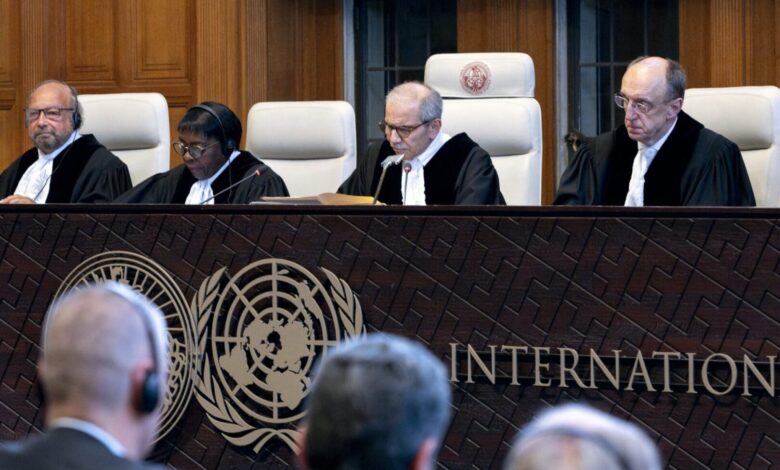The Urgency of Addressing Israel’s Occupation: Why the UN’s Advisory Opinion Matters

The recent advisory opinion given by the UN’s highest legal authority on the Israeli occupation of Palestinian territory may not have generated much public interest because it appears to be stating the obvious. Yet, this ruling is more important than ever, primarily where Israel fortifies its control over the West Bank and East Jerusalem and a permanent military base in some parts of Gaza is in view. This is the opinion of the International Court of Justice (ICJ and the first one to address the matter in its say) unambiguously deplores the occupation which has been going on for 57 years and thereby that it is unlawful.
While it has no direct authority to force changes to national legislation, its opinion is highly moral and politically influential. More political commitment can turn it into a resolution of the United Nations security council. In addition, this detailed legal document may tell these individual countries, international organisations, and businesses how they should relate to the occupation, settlements, supporters, and those in support of them.
The following was done at the instance of the UN General Assembly (UNGA) with a view to shedding more light on the nature of the policies and practices of Israel in the Occupied Territories, including East Jerusalem. Now, it is up to the UNGA and its member states to make of the court’s opinion actions and policies that could put an end to the occupation and thus lead to the solution of the Israeli-Palestinian conflict based on recognition of Palestinians’ right to self-determination and non-use of force against them by Israel.
This was evident when the Israeli Prime Minister Benjamin Netanyahu reacted to the ICJ ruling by telling the Palestinians that there is no such thing as International law. He rejected the court’s description of the occupation as unlawful, stating it as “absurd” The Israeli prime minister’s speech continues to disregard the territorial conquest by military force, and thus, the territories of Jerusalem or West Bank must be considered occupied under international law. This position also goes against the classical Zionist approach that recognised the partition of Mandatory Palestine in the past, which resulted in the creation of the state of Israel within the 1967 borders.
This ICJ decision has been occasioned by Israel’s conduct in the West Bank, East Jerusalem and Gaza. As a principle of international law, an occupying force should not change the circumstances which yielded the temporary control of occupied territory. This principle presupposes that occupations are trans-tentative, but Israel’s conduct in the past period, particularly during the premiership of Netanyahu, has been focused on the permanent take-over of these territories, thus burying the two-state solution.
A few of the Israeli right-wing claims are that the Occupied Territories were not under the rule of Palestinians back in 1967, and thus, Israel needed to put up structures of governance. But these structures should have been transitional and, therefore, should have given the political power back to the local population to enable them to exercise their right to self-determination not tools of oppression and perpetual domination.
Israel also objected to the ICJ’s jurisdiction in forming an advisory opinion on this subject, but the ICJ rejected this objection. The UNGA had requested the ICJ to address how Israel’s policies and practices impacted the legal status of occupation, which is at the core of future negotiations on the occupation.
Critics who claim that the ICJ’s ruling could disrupt peace negotiations fail to recognize the reality; thus, in the present day, there are no active negotiations in the process of reaching a state of peace. The current Israeli government, like previous governments under Netanyahu, has farcically dismissed any notion of the two-state solution in a recent Knesset vote. This view of the ICJ, therefore, sustains the need to call it quits on an occupation that has been described as unlawful, along with practices such as settlement building, which just fuels annexation.
The ICJ’s advisory opinion sends a clear message: Palestinians demand that Israel has to stop its unlawful occupation of their land at once. In wanting to know why this was deemed necessary, the Israeli state only needs to look into years of unyielding occupation, continued granting of land seizures, and steady dilution of work on peace—factors that resulted in this concrete ruling.




